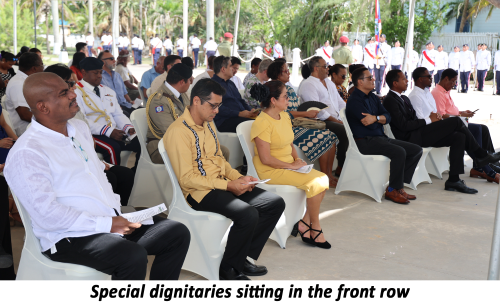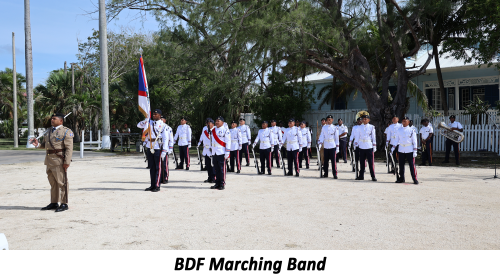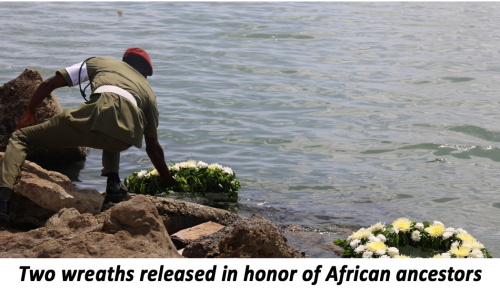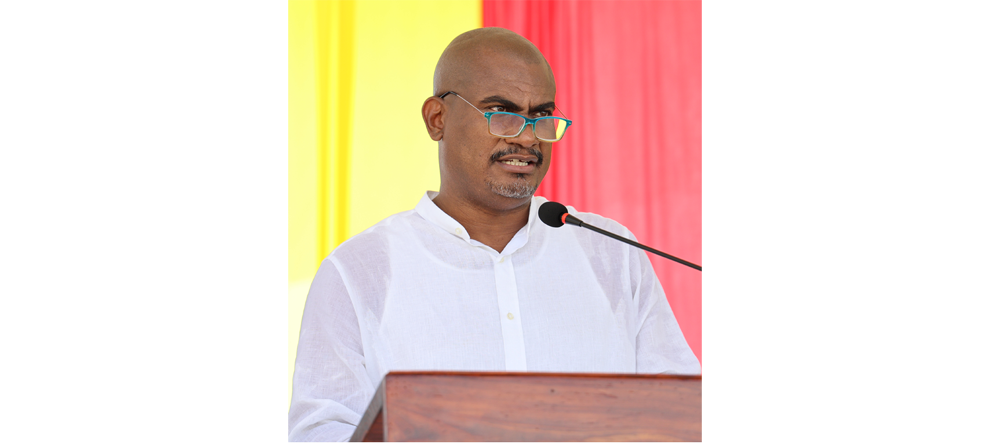Photo: Hon. Cordel Hyde, Deputy Prime Minister
by Kristen Ku
BELIZE CITY, Wed. Aug. 2, 2023
The nation of Belize joined its Caribbean counterparts in commemorating the 189th anniversary of the abolition of slavery in the British Empire and the 185th anniversary of the abolition of the system of apprenticeship.

For the third consecutive year, Belize observed Emancipation Day as a public and bank holiday, but this year marked a significant milestone with the inclusion of a formal state ceremony at the Government House in Belize City.
Dignitaries from various sectors of the Belizean government were present. Among the distinguished guests were City Councilor and Deputy Mayor of Belize City, Allan Pollard, Jr.; the Leader of the Opposition, Hon. Moses “Shyne” Barrow; Minister of Education, Culture, Science and Technology, Hon. Francis Fonseca; Chief Justice of Belize, Justice Louise Blenman; Minister of Natural Resources, Petroleum and Mining, and Deputy Prime Minister of Belize, Hon. Cordel Hyde; along with the Governor General of Belize, H.E. Dame Froyla Tzalam.

The ceremony, which took place at the Government House on Monday, July 31, began with an opening performance by the Belize Defence Force (BDF) Marching Band. The Education Upliftment Pilot Project under the Ministry of Education also made a presentation, with multiple students playing drums under the leadership of Shaheed Musa.
Other presentations included a libation ceremony conducted by Mr. Emerson Guild, the third Assistant President General of the Universal Negro Improvement Association in Belize; followed by George Gomez’s moving Emancipation Day poem presentation.
The ceremony itself emphasized the significance of acknowledging and paying homage to the indigenous people who have inhabited the region for thousands of years, their legacy deeply ingrained in Belize’s identity.
It also recognized Belize’s Creole and Garinagu populations, whose African ancestors endured immense suffering after being uprooted from Africa and brought to the Caribbean as slaves.
Historical data revealed that from the 1700s until the abolition of slavery on August 1, 1838, approximately 2,500 enslaved Africans toiled annually in the forests of Belize. Despite the harsh conditions, their labor played a significant role in driving timber exports, enriching the enslavers and the colonial state.
Throughout this period, acts of oppression, subversion, and resistance were notable aspects of a life under bondage and the arduous journey toward emancipation.
In reflecting on these facts, Mr. Ronaldo Cocom, Director of the Institute for Social and Cultural Research, stated during his speech at the ceremony, “Emancipation Day serves as a reminder of the past, recognition of the present, and a call to action to confront enduring legacies and enslavement. It is an affirmation of our unwavering commitment to freedom and equality; an affirmation of the rich and shared African heritage of Belize and the Caribbean.”
The Deputy Prime Minister, Hon. Cordel Hyde, delivered the official Emancipation Day Speech, highlighting the profound significance of the day in Belizean history.
He solemnly remarked, “It took us 183 years to mark Emancipation Day in this country, to mark an end of 200 years of atrocities on our people and the beginning of what was supposed to be true freedom, true emancipation from white supremacy. To honor the story, the journey, and survival and eventual freedom of our African ancestors, it’s to honor the very best of who came before us.”
Minister Hyde passionately spoke about the atrocities endured by enslaved Africans throughout history, emphasizing that their survival and perseverance against all odds should serve as a reminder and a source of inspiration.
He urged his fellow Belizeans to confront the challenges they face today and work towards building a more united and harmonious society.
The ceremony concluded with a poignant gesture, as Deputy Prime Minister Hon. Cordel Hyde and Governor General Madam Froyla Tzalam aided BDF soldiers in releasing two wreaths into the nearby Caribbean Sea.

The first wreath was dedicated to the African ancestors who suffered and perished during the harrowing trans-Atlantic journey from Africa to the Caribbean region, while the second wreath paid tribute to those who arrived in the New World and endured the brutality of enslavement over the course of 200-plus years in the Americas.
Emancipation Day in Belize is more than just a commemoration; it is a moment of deep reflection, unity, and a call to action to shape a better future, a point that was beautifully noted by Minister Hyde as he stated, “This cannot be just an event; this has to be a movement.”

